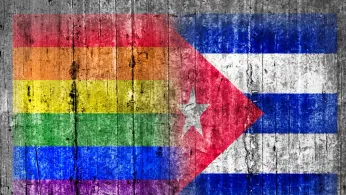
Jul 25
Cuba Enacts Landmark Law Allowing Trans People to Change Gender Markers Without Surgery
READ TIME: 2 MIN.
Cuba’s National Assembly of People’s Power has passed a transformative law permitting transgender people to change the gender marker on their official identification documents without the prerequisite of gender-affirming surgery, court orders, or other invasive requirements. The new legislation, approved last week, positions Cuba alongside countries such as Argentina, Uruguay, Germany, and Malta, which have adopted similar self-determination models for gender identity on legal documents .
The law amends Cuba’s Civil Registry statutes, allowing citizens to self-declare their gender for the purposes of identification without undergoing medical or legal procedures that were previously mandatory. This means transgender people can now change their gender markers on IDs simply by applying, removing longstanding barriers that included mandatory surgery or lengthy court proceedings .
The move was publicly referenced by Cubadebate—a government-run news site—during its coverage of the International Day Against Homophobia, Biphobia, and Transphobia, highlighting the government’s commitment to advancing LGBTQ+ rights .
Cuba has made incremental progress in LGBTQ+ rights over the past two decades. The National Center for Sexual Education (CENESEX), led by Mariela Castro, has long advocated for expanded rights and access to healthcare for LGBTQ+ Cubans. Free gender-affirming surgeries have been available since 2008, but activists have criticized these services as limited and difficult to access for many .
Until this law’s passage, legal recognition of gender identity required invasive medical interventions or protracted legal battles—hurdles that advocates argued were out of step with modern understandings of gender autonomy and human rights .
The new law comes after years of lobbying and public discourse from LGBTQ+ activists and allies, supported by sympathetic lawmakers and international human rights organizations. The Cuban constitution already contains provisions protecting against discrimination based on sexual orientation and gender identity, but the enactment of this legislation represents a concrete step toward full legal recognition .
LGBTQ+ advocates and community members in Cuba have welcomed the reform as a much-needed validation of transgender identities and a safeguard for personal dignity. Social media platforms such as Instagram and TikTok have seen an outpouring of support, with users sharing personal stories and expressing optimism about the country’s evolving stance on gender identity .
Internationally, Cuba’s new law places it among a growing cohort of nations upholding self-determination as a legal standard for gender identity. Argentina, which pioneered this approach in 2012, has been widely cited as a model for progressive transgender rights. The Cuban development is anticipated to inspire further reforms in other Latin American countries and beyond .
Despite this progress, Cuban activists note that broader issues of equality and freedom remain. While the constitutional framework bans discrimination, there are ongoing concerns about the treatment of LGBTQ+ activists who challenge the government on other civil rights issues. Access to healthcare, employment, and public acceptance continues to be uneven, particularly outside major urban centers .
Nonetheless, the passage of this law is widely regarded as a pivotal and positive step. As Cuba implements these changes, advocates hope the country will continue advancing toward comprehensive equality for all LGBTQ+ people.






